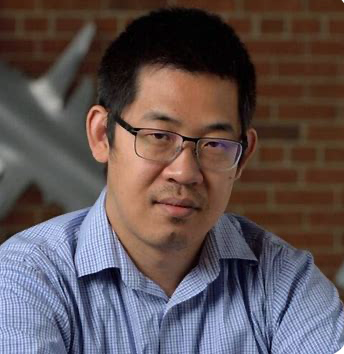2024东南大学江苏省应用数学科学研究中心-国际暑期学校系列课程
2024 International Summer School Program in Jiangsu Provincial Scientific Research Center of Applied Mathematics of SEU
项目主题: 分析、代数与计算国际暑期课程
Theme: International Summer Courses on Analysis,Algebra and Computation
开课院系:东南大学数学学院
Faculty: School of Mathematics,Southeast University
项目概述/Overview:
本暑期课程是从分析、代数和计算三个学科前沿方向选取适当的模型案例作为载体,介绍相关领域的最新研究成果及其在工程实际中的应用,强化学生对知识的运用, 提升学生对知识的理解。
This program selects appropriate model cases from the frontier directions of analysis, algebra and comnputation, and introduces the latest research results in relevant fields and their application in engineering, in order to improve the students' understanding of knowledge and strengthens students' ability of application.
# Course 1 #
Measure Theory and Integration
测度论和积分
在本课程中,我们将学习度量的概念,它概括了长度、面积和体积的概念。我们将看到这一理论如何在分析中用具有一些有趣性质的更方便的积分取代经典的黎曼积分。特别是,我们将证明与这个新的积分概念相关的主要定理(法图引理、单调收敛定理、控制收敛定理和富比尼定理)。我们将把这些结果应用于依赖于参数的积分研究。最后,我们将看到这种新型积分是如何成为概率论的核心的。有意修读此门课程的同学请加入课程QQ群:511566073。
In this course, we shall the notion of measure, which generalizes those of length, area and volume. We shall see how this theory makes it possible to replace the classical Riemann integral with a more convenient one in analysis that possesses some interesting properties. In particular, we shall prove the main theorems associated with this new notion of integrals (Fatou's lemma, the monotone convergence theorem, the dominated convergence theorem and Fubini's theorem). We shall apply these results to the study of integrals that dependent on a parameter. Finally, we shall see how this new type of integral lies at the heart of Probability Theory. The students interested in this course are required to join the QQ group: 511566073。
节数/Class | 课程内容/Content | 授课教师/Lecturer | 授课平台和地点/Platform | |
Aug. 19 15:50-17:25 | C8-C9 | Measurable space. We define σ-algebra and their properties. | Prof. Yannick Baraud | Room 101, Building J6 |
Aug. 21 18:30-20:45 | C10-C12 | Measure Space. We define what a measure is and study their properties. | Prof. Yannick Baraud | Room 101, Building J6 |
Aug. 23 18:30-20:45 | C10-C12 | Monotone class. We define what a monotone class is and establish the theorem of unicity of finite (and σ-finite) measures. We study the properties of the cumulative distribution function of a probability | Prof. Yannick Baraud | Room 101, Building J6 |
Aug. 26 15:50-17:25 | C8-C9 | Measurable function. We define what a measurable function is and we study their properties | Prof. Yannick Baraud | Room 101, Building J6 |
Aug. 28 18:30-20:45 | C10-C12 | We define the Lebesgue integral of nonnegative measurable functions and we establish the monotone convergence theorem and Fatou’s Lemma | Prof. Yannick Baraud | Room 101, Building J6 |
Aug. 30 18:30-20:45 | C10-C12 | We define the Lebesgue integral of integrable functions. We establish the dominated convergence theorem. | Prof. Yannick Baraud | Room 101, Building J6 |
Sep. 2 15:50-17:25 | C8-C9 | We define the product measure and establish Fubini-Tonelli and Fubini-Lebesgue theorems. | Prof. Yannick Baraud | Room 101, Building J6 |
Sep. 4 18:30-20:45 | C10-C12 | We give the main theorems about the continuity and the derivability of an integral that depends on a parameter | Prof. Yannick Baraud | Room 101, Building J6 |
Sep. 6 18:30-20:45 | C10-C12 | Examination. | Room 101, Building J6 |
Lecturer

Prof. Yannick Baraud
In 1998, Prof. Yannick Baraud defended his PhD at Paris-Saclay University (former University Paris XI) and had a position of Researcher (for the French National Center of Scientific Research) based at the Ecole Normale Supérieure of Paris in 1999. He became full professor at University Côte d’Azur in 2003 and joined the University of Luxembourg in 2019 as the ERA-Chair holder of « SanDAL ». It is a Chair in Mathematical Statistics and Data Science funded by the European Commission Horizon 2020 research and innovation programme. He work in the area of Mathematical Statistics with a special interest in model selection, hypothesis testing, parametric and non-parametric estimation and robust estimation.
# Course 2 #
Selected Topics in Advanced Algebra
高等代数研学
通过此课程,学生将熟悉数论的基本知识及其可能的应用,并能够关注该领域的一些更高级的主题。有意修读此门课程的同学请加入课程QQ群: 948045971。
After this course, students will be familiar with the elementary part of number theory and its possible applications, and be able to follow certain more advanced topics from this field. The students interested in this course are required to join the QQ group: 948045971。
时间/Time | 节数/Class | 课程内容/Content | 授课教师/Lecturer | 授课平台和地点 |
Aug. 19 14:00-15:35 18:30-20:05 | C1-C4 | Pythagorean theorem and related materials | Siu-Por Lam | Room 101 Building J3 |
Aug. 22 14:00-15:35 16:40-18:15 | C5-C8 | Discussion or presentation | Siu-Por Lam | Room 101 Building J3 |
Aug. 26 14:00-15:35 18:30-20:05 | C9-C12 | Congruent number problem | Siu-Por Lam | Room 101 Building J3 |
Aug. 29 14:00-15:35 16:40-18:15 | C13-C16 | Discussion or presentation | Siu-Por Lam | Room 101 Building J3 |
Sept. 2 14:00-15:35 18:30-20:05 | C17-C20 | Elliptic curves and ellipses | Siu-Por Lam | Room 101 Building J3 |
Sept. 5 14:00-15:35 16:40-18:15 | C21-C24 | Discussion or presentation | Siu-Por Lam | Room 101 Building J3 |
Sept. 9 14:00-15:35 18:30-20:05 | C25-C28 | To choose from the following: continued fractions, quadratic forms, elliptic integrals | Siu-Por Lam | Room 101 Building J3 |
Sept. 12 14:00-15:35 16:40-18:15 | C29-C32 | Discussion or presentation or exam/test | Siu-Por Lam | Room 101 Building J3 |
Lecturer

Prof. Siu-Por Lam
Prof. Siu-Por Lamreceived his Ph.D. in Philosophy from the University of Cambridge, UK, in 1983, specializing in Algebraic Topology under the supervision of the renowned mathematician Frank Adams. He served as an Associate Professor in the Department of Mathematics at the Chinese University of Hong Kong and later taught short-term mathematics courses at Capital Normal University.
# Course3 #
Model reduction and scientific machine-learning
模型构建及机器学习方法
随着科学技术特别是新型材料,化学工程以及生物技术的发展,如何准确构建多尺度复杂物理系统的计算模型已经成为科学研究的新热点。由于传统经验性模型理论和数值方法往往失效,一些新的基于数据驱动或者机器学习的概念、方法、算法以及和实际应用正在不断涌现。本课程通过多尺度系统建模的视角主要介绍模型简化的以及相关机器学习的概念方法及其应用。主讲内容有高维系统以及相关数据驱动和机器学习的模型简化方法以及在经典计算数学模型(如流体以及热传导问题)中的应用。有意修读此门课程的同学请加入课程QQ群:598466861。
This course focuses on scientific machine-learning methods designed to construct reduced models of multiscale systems with an emphasis on the direct connections to computational mathematics and natural science applications. Topics includes the Liouville equation, Langevin dynamics, reduced basis method, physics informed neural network, sparsity identification of dynamic system and structure-preserving reduced order modeling. Applications to fluid mechanics and heat transfer models will also be discussed. The students interested in this course are required to join the QQ group: 598466861。
时间/Time | 节数/Class | 课程内容/Content | 授课教师/Lecturer | 授课平台和地点/Platform |
26-Aug 8:00-11:25 | C1-C4 | Introduction to high-dimensional particle systems and Liouville equation | HuanLei | Room 101, Building 6 Tencent Meeting 883-485-9937 |
28-Aug 8:00-11:25 | C1-C4 | Dimensional reduction of Liouville equation, Langevin dynamics with connection to Markovian Chain Monte Carlo | HuanLei | Room 101, Building 6 Tencent Meeting 883-485-9937 |
2-Sep 8:00-11:25 | C1-C4 | Brownian motion, Langevin equation and the Fokker-Planck equation | HuanLei | Room 101, Building 6 Tencent Meeting 883-485-9937 |
4-Sep 8:00-11:25 | C1-C4 | Model reduction of heat equation; applications to heat equation or fluid systems | HuanLei | Room 101, Building 6 Tencent Meeting 883-485-9937 |
9-Sep 8:00-11:25 | C1-C4 | Physics informed neural network; Sparsity identification of dynamic system and applications | HuanLei | Room 101, Building 6 Tencent Meeting 883-485-9937 |
11-Sep 8:00-11:25 | C1-C4 | Structure preserving reduced order modeling; application to physical modeling | HuanLei | Room 201, Building 8 Tencent Meeting 883-485-9937 |
Lecturer
![]()

Prof. Huan Lei
Dr. Huan Lei got his Ph.D. in applied mathematics at Brown University. He is currently an assistant professor at Michigan State University. His research mainly focuses on developing physics interpretable and structure preserving machine-learning methods for computational modeling of multiscale problems.